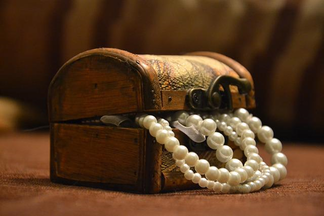
Once he crossed the field, he turned to view his footsteps, which showed the direct path he’d taken from the edge of the bamboo stand to the small hut he stood in before now. He cursed, hoping the accumulating snow clouds would cover his tracks when his pursuers reached the field. Shivering, he pushed the door of the ramshackle cabin open and stepped into the small room.
Leaning against the door, he felt his breath begin to slow down. He stood for a moment for his eyes to adjust to the dim light that filtered through the small windows set high on the walls. Small piles of snow littered the far end of the floor. A glance at what passed as a ceiling, mostly the rafters and thatch that made up the roof, showed where the wind and rain made small holes in the roof and let the elements drift in.
At least he was out of the weather and wind for now. He didn’t dare fire up the old wood stove in the corner of the room. So, he scrounged around the small hutch near the stove and found some old bread and dried beef that still looked edible.
As he ate, he considered that he couldn’t stay here. Soon, they would discover that he’d escaped and come looking for him. Glancing at his watch, he figured he still had time before they noticed him missing.
Earlier in the morning, Jason Cramer had slipped out of the secure wing of Wentworth, a minimum-security prison that he’d been sent to for allegedly stealing millions of dollars from the company he worked for. Shivering as he nibbled on the stale bread, it crossed his mind that he’d be warm back in prison but not safe. Tony Roman had already tried to kill him twice.
Tony Roman was a vicious bastard, despite what he would like you to think. Because of his influence with state and local officials, he’d managed to have his charges reduced and was sentenced to a minimum-security prison instead of San Quentin or Folsom, where he should have been. He’d conned most of the prison staff and administration into believing his stories and that he never actually hurt anyone. But the prisoners and some guards knew the truth.
Tony believed that Jason knew where the missing money was. Worse yet, he thought he deserved some of it. Why? The best reason Jason could think of is it was there. He’d had nothing to do with the company or the money and had only found out about it when Jason arrived in the prison. Tony made it his business to know everything about Jason and his life before Wentworth, suspecting, despite saying he was innocent, that Jason knew where the money was. Tony wanted his share, just because.
The sudden snowstorm gave Jason the perfect opportunity to slip out unnoticed. Getting past the guards and the outer perimeter fencing had been ridiculously easy—too easy, even for a minimum-security prison. The feeling in the pit of his stomach wasn’t just hunger but fear that he’d been set up.
It would be dark soon, and the temperature would drop even more. Fear and cold sent shivers through him, and he peered out the small window. The unpredictability of the weather made his chances of escaping even more dubious. But he had to try.
Jason stepped back outside into the blanket of light snow. On a work detail outside of the prison, he had seen a farmhouse, and he was sure it was nearby. Pushing onto the nearest narrow blacktop road, he headed toward the farmhouse he’d seen. It was nearly dark when he found the farmhouse. A single light shone from the front porch. Even in the half-darkness, it was a beacon of safety. At least, he hoped it was. Fortunately, he’d escaped while wearing his recreational sweatpants and shirt, so he didn’t look different than anyone else.
As he knocked on the door, he didn't have a plan. He figured he’d play it by ear and hope for the best. There was the sound of activity inside as someone turned off the television and came to open the door. Cracking the door, she held it firmly, ready to close it instantly. Jason could see little more than the mop of unkempt hair on her head and the collar of her bathrobe.
“Hi. Um, I need some help. You see, my car broke down, and my phone died. Could I… use your phone and come in and warm up?” He tried to look harmless and safe.
She carefully looked him up and down and stepped back from the door, opening it wide. “Your car didn't break down. You’re from the prison. Jason Cramer. I wondered If I’d get to meet you. Come on in before you catch a death of cold.”
Jason’s face turned white as the blood drained from it. Blinking twice, he recovered and stepped into the living room. He stood by the closed door as she walked to the center of the room.
“You know me?”
“Well, not personally, until now, but I followed your trial and was there when they sentenced you to prison. I hoped they would send you to Wentworth.
As prisons go, it's a pretty easy place to be.”
‘“You're probably hungry.” He nodded yes.
“Well, come on, I don’t bite. Much.” With a wave of her hand, he followed her into the small kitchen.
“The bathrooms over there.” He nodded his thanks and headed for it.
Closing the door behind him, he leaned against it and tried to steady his breathing. Never in his life had he been so scared.
He tried to piece together what she’d said as he did the necessary things. She knew him, had been to his trial for embezzlement, and wasn’t the least bit scared of him, which scared him. He took longer than usual before coming back out to the living room. The house was tidy, although the furniture was old. There was a comfortable-looking couch and nice club chairs. He headed into the kitchen, where she was standing next to a small chrome table.
“Sit down and eat, and I’ll tell you how I know you. My name is Mary—Mary Long.” She handed him a plate filled with food. Jason dug into the food, hungrier than he realized.
She gave him a few minutes, then started talking. “Jason, I followed your case because it is similar to one close to me, and frankly, I don’t believe you stole the money.”
“Okay, you better start at the beginning.”
Mary went to the living room. He watched as she opened a drawer at the top of the cabinet and pulled out a folder. She returned to the table.
“My father, Deven Long.” She handed him several printouts of articles from the folder. Jason glanced at them as she continued.
“The police suspected him of embezzling several million dollars from his company, which he founded long before I was born. He didn't need to steal money. He’d made more than enough money for us to live in style. He wasn’t the only person with access to the accounts, but the other company officers claimed they had nothing to do with it, and the Feds couldn’t pin it on anyone else in the company.” She paused a minute, composing herself. “They charged my dad, tried to claim he had gambling debts, but they couldn’t prove that. He lost everything, the company, and most of his money for legal fees, and….” This time, her eyes filled with tears. She stared into her coffee cup like she hoped to find answers in it.
Jason read the articles carefully. She was right. The evidence against her father was thin at best, but not finding any of the money, just that he had access, was enough for a jury to convict him. Rereading some of it, he saw similarities between his and Deven Long’s cases.
“So, you came to my trials?” She nodded yes. “Okay, what about me? Now?” Jason put the papers back in the folder and handed them to her.
“I help you escape.”
“Huh?” He could only manage a short response.
“You’re innocent. I know it. You shouldn’t be in jail.”
“Thanks for the vote of confidence. But it's not that simple. With the money still missing, I’m on the hook for it at the very least, and….”
“Then let's find the money.” She sat upright on the chair and leaned forward, almost spilling her coffee.
“It’s not that simple. A team of forensic accountants couldn’t find any trace of it. So how are we supposed to find it? I appreciate the idea and would love to find the money, but....”
Mary leaned back in her chair as his reality settled in on her.
Jason cleared the dishes, placed them in the sink, and tossed the remains of their cold coffee down the drain. He turned toward her, leaning against the counter.
“May I see those files again?”
“Sure.” She got up and handed them to him.
Laying them on the kitchen table, he sat down and carefully reread them. After several minutes, he found what he was looking for—a name he knew—Clayton Russell. A name like that stood out. He’d been the CFO of Devon’s company, and he was also tied to his case—granted, only barely, but it was enough.
Looking up at Mary, he grinned. “I found our common thread.”
She sat across from him. “What? Who?”
“Clayton Russell was your dad's Chief Financial Officer. The papers mention him as testifying that he had no, but he had access to parts of the accounts for his division. He was also the CFO of my company when my dad ran it. I was only fourteen when the company fired Russel for mishandling funds. My dad and the Board of Directors wanted the whole thing to disappear. I’d forgotten about him.”
“You think he took our money?”
“I think he might have, but we need to prove it and find the money. Meanwhile, they’ll be looking for me.”
“By the way, just how did you escape Wentworth?”
‘It wasn’t hard. I work in the library three days a week, so I reported this morning. Then it started to snow, and it hit me. I could probably get past the guards at the side entrance. From past bad weather, I knew they wouldn’t be in a hurry to go out in the cold and snow. Security is pretty lax there, and I’ve seen them stay inside during their shift if the weather is bad. I took a chance that they weren’t paying attention. I’d checked out both the interior and exterior cameras' blind spots and already knew how to avoid them. I waited until two p.m. when my shift ended, acted like I was going to my cell, and hid in a supply closet next to the side door. I waited for a guard to come inside, and when he passed, I slipped behind him, grabbed the door before it closed so I didn’t set off the alarm, and ran.”
“You took quite a chance.”
“I figure the guards wouldn’t miss me until after mess when they do a head count. Which should be about now.” Jason glanced at the wall clock. It just stuck seven p.m., when prisoners were supposed to be in their housing units for roll call. “It will take another ten minutes for them to realize I’m gone and the rest of the hour for them to go through the video footage for the day and see where I got out. Then they start looking for me,” he explained.
“But won’t your tracks lead them here?”
“I don’t think so. It’s been snowing a lot harder in the last couple of hours. They will check the main roads and start a door-to-door manhunt.”
Mary brought them fresh coffee and leftover birthday cake. As she sat down, he asked the question that scared him.
“The immediate problem is, what are you going to do with me?”
He hadn’t told her about the attempts on his life. Or that he suspected they had made it easy for him to escape. Knowing some of the guards, there was a very good chance he’d never make it back to the prison alive.
She shrugged. “When they ask if I’ve seen anyone strange around here, I’ll tell them the truth. I haven’t left the house all day and invite them to look around.”
“So where am I?”
“Oh, you'll be right here. You’re my cousin from up north.”
“There is one problem with that. They know me and what I look like.”
“How long do you figure until they start house to house?”
He glanced at the clock. “Couple of hours at the most.”
“Come with me.” She got up and headed for the stairs.
He followed her upstairs, where four doors led off the hallway. Mary showed him to one of the bedrooms. She opened the closet door. “My dad's old clothes should fit you. I’ll be right back.”.
He was sorting through the clothes when she returned holding hair dye. “I know the box has a woman’s face on it, but my hair color is dark brown. It will make your lighter hair look like mine.” She was about to leave. “Hollar, if you need help, don’t forget to do your eyebrows.”
Twenty minutes later, he yelled for help, and Mary came to assist. One hour and a half later, he dressed in one of her father's suits, complete with cuff links and a tie tac to hold the silk tie in place. The finishing touch was the watch he put on. He’d never been a clotheshorse, always wearing good quality off the rack. But now, wearing a bespoke suit, he understood. Even though the suit didn’t quite fit as well as it should, it felt good.
Mary whistled softly as he reached the bottom of the stairs.
“You look good—sexy even.” She purred, looking him over. “My father never looked that good in that suit.”
Thanks was all he dared to say.
“Now, let's get your story straight. You’re my cousin from up north. Let's keep it vague, but if they push it, Lewiston, you’re in real estate, which explains the suit. You’re down for a few days for a birthday party. There was one, my sister’s kid.”
He repeated the story several times to get it straight. Then it dawned on him he didn’t have any ID. They would want to see something.
Jason mentioned it to Mary, and she disappeared back upstairs. A few minutes later, she returned with a wallet and glasses.
“You’re James Leroy, a cousin on my mother’s side. When they get here, put on the glasses.”
“Who is James Leroy?”
“She smiled. “My former fiancée. He left in a hurry. Funny, you look a bit like him.”
~~~
They had cleaned up the kitchen and the bathroom, where they’d dyed his hair. Mary got an old suitcase out, packed a few things in it, and then turned down the bed as if Jason had been sleeping there. Downstairs, she turned off all but two lamps, and they were watching television when there was a knock at the door. They looked at each other—showtime.
Jason headed to the kitchen while Mary took her time answering the knock. First, she turned down the TV and slowly made her way to the door. She cracked the door as she’d done with me, holding it close to her and not letting them see inside.
“Yes?”
“Evening, ma’am. We’re sorry to bother you at this late hour. I’m Officer Jones, and this is Officer Smith from Wentworth Prison, just over the hill. I’m afraid we’ve had a prisoner escape.”
“Oh really, is he dangerous?” She tried to sound confused and scared.
“He could be if he’s desperate. We’re talking to anyone who lives on this road. Did you see anything unusual or out of place late this afternoon?”
“No, I haven’t been out of the house all day!”
“Ma’am, our orders are to check every house personally to make sure he’s not hiding inside.”
She sighed in exasperation and opened the door wide so they could enter.
“Thank you, ma’am. We need to have a quick look around to make sure you’re safe.”
Jason sat at the kitchen table, a cup of coffee in hand and the remains of a piece of cake on a small plate in front of him.
She called out, “James, there are some men here looking for someone.”
They spotted Jason about that time and approached him.
“You are?”
“I’m her cousin, James Leroy. I came down for our nephew's birthday yesterday.” He spoke in a very deep voice.
“I see. You have any ID on you?”
“Why sure. Just a minute, officer.” He pulled his wallet from the inside pocket of his suit jacket and started to hand it to Jones. Smith had gone upstairs to check the rest of the house.
“Please take your ID out of the wallet.”
“Oh, sure.” He fumbled with it briefly, trying to remove the old ID from its plastic pocket.
Handing the ID to the cop, he waited while he read it and glanced at the picture and him.
After a few seconds that felt like an eternity, he returned the ID to Jason and turned toward Mary.
“Be careful. This guy is dangerous. Stay inside and safe until we catch him.”
“Oh, I will. We’re not going anywhere until you tell us it's safe.”
Mary let the two cops out the front door and watched as they got into their car and drove away into the dark. Leaning against the door, she took a deep breath.
“Wow, that was close. Did you know the guards?”
“No, fortunately, I’ve never seen them. They must be from another prison and called in after the escape.”
“Ok, what do we do now?” Mary busied herself in the kitchen, cleaning up my plate.
“Not sure, I’ve never escaped before. For now, we sit tight. They won’t be back tonight. Those two just wanted to get this over and get out of here. Hopefully, they won’t check up on the fake ID. Meanwhile, it's late, and I’m tired.” Jason leaned against the wall near the stairs. By now, Mary had turned off the television and locked the front door.
Glancing at her watch, she confirmed that it was indeed late. “The bed in the extra room is comfortable, or so they tell me. No one’s slept in there in ages.”
“You trust me?”
“Yes, Jason, if you are going to do something, I think you’ve done it before. Besides, I don’t have any choice, do I? I am now an accomplice to your crimes.”
“No, I don’t guess you do.” Jason followed Mary upstairs and into the bedroom.
“It's not much, but….”
“It's fine and much better than I’m used to. You lock your door. I’ll be fine here.”
They shook hands awkwardly. She almost leaned in to kiss him but pulled away. He fumbled with her hand and held it a little too long. They managed to say good night, and she left.
It seemed strange to sleep in a quiet room. Back in prison, there was never any real quiet or peace. Even when you were alone, you weren’t. There was always someone nearby, either a guard or another prisoner, and at the very least, cameras everywhere. Well, almost everywhere.
~~~
Jason slept better than he had in a very long time. Waking up in a strange room without the sounds of doors banging or shouting was a treat. He rose early and made coffee, and Mary joined him a short time later. As she fixed breakfast, he wrote a list of things he wanted her to buy.
He gave Mary specific instructions. She had to wear a big floppy hat and a coat that would hide her figure, sunglasses, and gloves. She was to go to several different places and buy pay-as-go phones, paying cash for them and some other items he requested. And no matter what, she was to not look into a camera anywhere. Before she left, she gave him access to her computer.
While she was gone, he installed a VPN and torrent browser. Once he felt reasonably safe from prying eyes, he started to work finding Clayton Russell.
Personnel paperwork for her father's business listed Russell’s last position as Chief Financial Officer, along with personal information that allowed him to trace his social security number. Soon, he had confidential personnel files on Clayton from every company he had ever worked for. Jason was surprised he wasn’t retired and didn’t believe for a moment that Russell wasn’t setting himself up to steal more money from his current employer. Either way, it was time to find his money.
He realized finding where and how Clayton hid all the money he’d stolen from various places was harder than he thought it would be. Off-shore and Swiss accounts are held in the strictest confidence, and getting them to tell you anything is almost impossible.
He heard a car pull up. Mary. As he instructed, she pulled the car around to the back door. While he helped her unload the car, he told her what he’d found out.
She told him she also had a surprise for him. Along with the six phones purchased at different places scattered over town, she had stopped at a relative and picked up something. She handed him a metal box holding two guns and boxes of ammunition for each.
Jason had thought about getting guns but dismissed the idea as too risky and hard, given his circumstances. He also really wanted to avoid using them if possible. He knew from experience that if they came out, you’d better be prepared to use it.
Both guns were revolvers. One was a Twenty-two, a cheap, no-frills target gun with a fixed sight and a blued finish. The other was a slightly nicer version of the same gun, with an adjustable rear sight and a heavier, longer barrel. Both would do the job, especially at close range. Mary refused to tell him who had given her the guns, only that it was a trusted family member.
He had found Clayton Russell's address and passport records online, showing he’d traveled to the Cayman Islands earlier in the year. While he never got the actual account numbers, he did find that he more than likely had several accounts in offshore banks whose specialty is tight security and hiding money. As for Clayton, Jason had his address, and Mary’s car had GPS. They would find him.
They loaded her car with food, clothes, and the burner phones. Jason turned off Mary's phone and removed the SIM card, rendering it untraceable, he hoped. If the police came back for more questions and found her gone, they would start looking for her, on the assumption that he’d kidnapped her. He wanted them to be out of there before they called his bluff. Mary had filled the tank on her morning run as instructed. They did not need to stop anywhere on their way out of town.
The news of his escape had made the local radio and news. After he made it through the woods surrounding the prison, they had no idea where he'd gone, and Jason was happy to keep it that way.
~~~
Clayton Russell lived two hours away, and the drive was boring, which suited Jason just fine as he needed time to think. Russell had done well with other people's money. The estate was on an exclusive side of town and required you to be a millionaire to buy a run-down shack. His place was far from a shack.
They parked on the street, walked to the front door, and pressed the doorbell. Getting in to see Clayton was easier than he thought it would be. Russell opened the front door.
Jason remembered him as a younger man and was surprised at how he had aged. Clayton was tall, but the years had bent him, and his muscular physique was now scrawny. He waved off a young man dressed in scrubs. “I don’t need you hovering. I’m fine. Go back to your game shows.” His demeanor hadn’t changed as he greeted them gruffly. “Who are you?”
“You don’t remember me, do you, Clayton?”
“No, but I remember Miss Mary here. It's good to see you.” He tried to shake her hand, but she pulled it back and scowled at him.
“You damn well ought to remember me. You put my father in jail and destroyed his company.”
The hate in her voice seemed to shock Russell, but he recovered quickly. Turning toward Jason, he didn’t even offer his hand. “I hear you’ve been a bad boy and flown the coop.” He taunted.
“I didn't steal millions of dollars, disappear, and leave a company to die slowly and hundreds of people out of work.”
“The law says you did.”
“We both know better. I’ve found your bank accounts and all your assets hidden in offshore islands, including a couple of Swiss accounts.”
“So? Why does that matter?”
“It's time to pay up, pay back what you owe, and take your knocks.”
“I’d rather not. I wasn’t implicated in any of this. They investigated me and found nothing. So, I’m free and clear. Now, I want you to leave, or I will ask my assistant to escort you out.”
“Actually, no. We know that you worked for Mary’s dad’s company and then my family's company, and both her day and I went to jail for embezzlement. Only we didn’t do it. You did. Because you worked for both companies and the Cayman bank accounts, I think the Feds will figure this out.”
Clayton pale and stumbled back into the house. We followed him into an office, where he collapsed into a chair.
“What do you want?”
“Justice for Mary’s father and me. Baring you turning yourself in, which I don’t expect you to, I will give what I know to the Feds and ask for a new trial. I’m a wanted man, and Mary here deserves restitution for all the pain and suffering you put her through.” Jason let it hang there. Clayton leaned back in his chair and started to laugh.
Anger raged in Jason, and he leaned over the desk, intending to grab Russell’s shirt, when a choking sound cut off the old man’s laughter. Russell grabbed his chest, and the color drained from his face as he gasped for air. The old man gurgled, and he slumped against the chair, dead.
Jason checked Russell’s pulse and turned toward Mary. “Shit. He’s dead, probably a heart attack.” He had to act quickly. “Mary, you weren’t here when he died. Go into the bathroom and leave plenty of prints in all the right places.”
“Okay.”
While Mary was in the bathroom, he began to search the room. Knowing that a numbered bank account in Switzerland or the Caymans needed an extremely long code to claim it, he was certain Russell likely couldn’t remember it. He must have written it down. Jason began to search the room, finding nothing on the desk, in or under the drawers, or in the files. Mary came out of the bathroom while he was standing in the middle of the room, trying to decide where to look next.
Then he spotted pictures hanging on the far wall behind a sofa. Photos of destinations like Bora Bora, London, Paris, Sydney, and he had a hunch.
He took each picture down and looked at the back of it. He was right. “Look, these have to be the codes for his Cayman accounts written on the back of each picture.” He’d found a small notebook and wrote the numbers down using the alphabetical lists of cities. He placed the notebook in his jacket pocket and ushered Mary out of the house.
They walked out of the office into the foyer and out the front door, hoping the assistant wouldn’t see them. Acting much calmer than they felt, they managed to drive away before all hell broke loose.
Jason had her turn into a strip center parking lot several miles down the road.
Mary gripped the steering with a death grip. She glanced at him at him. “What just happened?”
“He had a heart attack and died. There was nothing anyone could do. He was dead in seconds. That's probably why he had a nurse or whatever, that dude there was. I told you to go into the bathroom because our prints were all over there. I want you to say you were in the bathroom when he died. That way, hopefully, they can’t try to pin anything on you.”
“But you didn’t do anything.”
“I know, but the cops won’t see it that way. I’m an escaped felon. You have to tell them I forced you to bring me here to see Clayton Russell, but you don’t know why. Then I forced you to drive me to the airport, and I let you go.”
“But I don’t understand.”
“Mary, I’m trying to protect you. You were the victim here. I force you to help me escape. You understand?”
“Okay. But what about you?”
“Hopefully, the numbers I got off the back of the pictures will let me into his hidden bank account. I want you to lie low for twelve hours. Find a place to park where no one will notice you, and then contact the police and tell them I kidnapped you. Tell them you don’t know what happened to me after I told you to drop me off. When they come to see you, and I’m pretty sure they will, you were scared of me and what I might do to you. You had no idea who Russell was or why I wanted to go there. When he died while you were in the bathroom, we both panicked and ran. Which is true.”
She repeated what he’d said while they headed for the airport. The nearest airport was a small regional one that only handled short flights, but that was enough for him to get lost.
As he was getting ready to get out of the car, he turned and faced her closely.
“Listen, Mary. When I get settled, I’ll send it for you. That is if you want me to.” She nodded yes. “You’ll know it’s me when the message comes.” She nodded again. Jason leaned over, kissed her gently, and slid out of the car and disappeared into a crowd.
~~~~
Jason's instinct was right to create the cover story. Mary told the police that Jason had shown up at the house after he escaped and that he had threatened her when the officers came to the house that night. Then he had forced her to drive him to Clayton Russell’s house, but she didn’t know why. She was shocked, and so was he, when Russell had a heart attack. The police pushed her, convinced she knew more, but she stuck to what Jason told her to say. Jason disappeared, Russell died by natural causes, and the story disappeared.
Six months later, a large brown envelope postmarked from the Cayman Islands arrived in her mail. Mary knew instantly that it was from Jason. Trembling with fear and excitement, she tore open the envelope and removed the contents. Inside was a one-way, open-dated airline ticket for Marge Lewis to an island in the South Seas. Included was a passport with her real passport photo, a visa for the island, a state driver's license, and a social security card—everything she needed for a new life.
~~~
Jason waited at the airport. The flights only came in once a day, and he would park where he could see the small plane land, hoping she was on the flight. He had successfully accessed the Cayman account and discovered more money than expected. He’d found someone through the dark web to make new documents for himself and Mary. He mailed hers and a one-way plane ticket and waited. Two weeks later, his wait was over.
~~~
Marge Lewis reclined on a lounge chair under a palm tree, the deep blue ocean waves lapping the beach. She smiled as she sipped a Margarita, Bossa Nova music drifting on the breeze while sitting with the man she loved. This was the life.









 RSS Feed
RSS Feed
